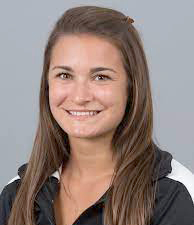Posted by
Gender-affirming voice care
Many gender expansive individuals will choose to pursue medical and surgical interventions to better align their outward appearance with their gender identity. Many options for gender-affirming care exist and may include hormone therapy, chest surgery, hysterectomy or orchiectomy, and hair removal. Some gender expansive individuals feel that the sound of their voice is not reflective of their gender identity and may seek professional voice care.
What is professional voice care?
Professional gender-affirming voice care can include both medical and surgical options, depending on the voice goals of the individual. Voice therapy entails working with a professionally trained speech language pathologist to learn and practice techniques to alter vocal pitch, resonance, articulation, and inflection in a safe and sustainable way. Patients choosing to pursue voice therapy can meet with a speech language pathologist over multiple visits to achieve their ideal voice sound. Some individuals wish to pursue gender-affirming voice surgery with a laryngologist – a surgeon who operates on the larynx or “voice box.” There are many surgical options for changing the shape and length of the vocal cords to create a higher pitched, characteristically feminine-sounding voice. Surveys have shown high patient satisfaction with both voice therapy and voice surgery. Choosing between these options is a personal decision and requires a thoughtful discussion between patient, laryngologist, and speech language pathologist.
What does a new patient appointment entail?
Prior to beginning gender-affirming voice care, patients may meet with both a laryngologist and speech language pathologist to share their goals for their voice and discuss the risks and benefits of medical and surgical options for voice care. At the initial appointment, a laryngologist may use a device called a laryngoscope – a small camera that is passed through the nose and into the throat – to take a close look at the health and movement patterns of the vocal cords. A laryngologist may apply a numbing spray to the nose prior to beginning the exam. The whole procedure lasts less than two minutes and is well-tolerated by children and adults alike. Some patients, such as those who smoke or have previously tried voice training without the guidance of a medical professional, may have sustained damage to their vocal cords that may require treatment prior to beginning voice therapy or undergoing gender-affirming voice surgery.
How do I know if professional voice care is right for me?
Voice therapy and voice surgery are options for anyone wishing to change the sound of their voice. More commonly, gender-affirming voice care is pursued by individuals who which to achieve either a gender-ambiguous or higher pitched, characteristically feminine-sounding voice. Many transmasculine individuals taking testosterone favorably develop a lower pitch voice soon into the course of hormone therapy. Vocal cords exposed to testosterone grow longer and thicker, thereby decreasing the vocal pitch and producing what many listeners perceive to be a masculine voice. These vocal cord changes are permanent and persist even after testosterone therapy is discontinued. The vocal cords do not change shape or length in response to estrogen. Many people benefit from professional voice care and find voice therapy or surgery helps them achieve their vocal goals.
How do I learn more information?
The University of Michigan is proud to offer gender-affirming care through the Vocal Health Center. More information about establishing care can be found on the University of Michigan Transgender Services webpage. The University of California, San Francisco offers in-depth overview of medical and surgical interventions for care of the transgender voice. The University of California, Irvine School of Medicine has produced a helpful video overview of flexible laryngoscopy, the video camera procedure laryngologists use to look at the vocal cords.
 About the Author
About the Author
Sloane Brazina (she/her/hers) is a 4th year medical student at the University of Michigan Medical School.She has a special interest in improving health outcomes for transgender and gender non-conforming individuals through health education and direct patient care.
Mailing Address
23332 Farmington Rd #84
Farmington, MI 48336
Call
248.907.4853
